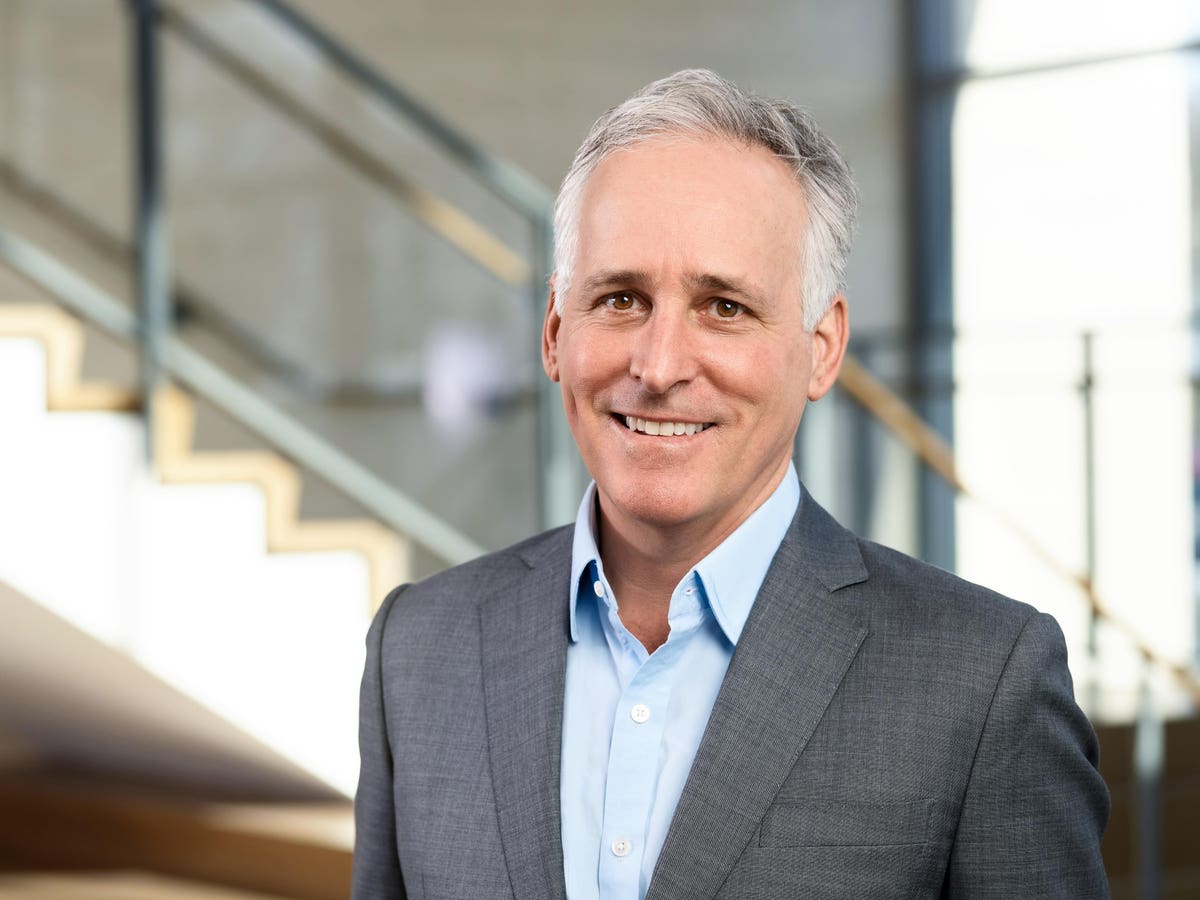For over 30 years, Richard Pops has been the CEO of Alkermes (NASDAQ: ALKS), a company steadfastly focused on neuroscience—a notoriously challenging therapeutic area with highly stigmatized patient populations. When Pops joined Alkermes in 1991, it was a privately held company with only 25 employees. 32 years later, the company has more than 2,000 employees and is valued at nearly $4.3 billion.
His journey from a 28-year old first-time CEO to leading the company through its public offering and numerous significant challenges, such as a 70% stock crash in 2002, is a testament to his resilience and vision. As a freshly minted CEO, Pops faced an important decision. Michael Wall, Alkermes’s founder, posed the question, do you want to build Alkermes for acquisition or build a “skyscraper.”
“For me, the decision was easy. I want to build a skyscraper,” says Pops. “I’ve never been motivated by money but instead the impact I can have by solving enormously challenging problems. If you assemble top human capital, smart, creative people that are fun to work with, why stop?” says Pops. Since that pivotal decision, Pops’ leadership and willingness to learn from mistakes have been instrumental in Alkermes’ success and ongoing adaptation in the competitive pharma landscape.
Under his leadership, Alkermes has dedicated itself to serving patient populations with high unmet needs, particularly in the therapeutic areas of substance use disorder and serious mental illness. These areas, often overlooked by the broader pharmaceutical industry, saw a significant breakthrough with the approval of Alkermes’s Lybalvi in June 2021. Alkermes has numerous other commercially approved products such as Vivitrol for alcohol dependence and opioid dependence, Aristada for schizophrenia, Aristada Initio for schizophrenia, and Vumerity for relapsing forms of multiple sclerosis marketed by Biogen (NASDAQ: BIIB).
Alkermes’s commitment to understanding the lived experiences of stigmatized patients with serious mental illness and substance use disorder has profoundly influenced its approach to drug development and commercialization. “During our early work with Johnson & Johnson (NYSE: JNJ), when we began to understand the role adherence would play in better outcomes for patients with schizophrenia, we thought long-acting injectable anti-psychotics would be niche products. They turned out to be big products because part of the disease is the inability or unwillingness to take your medication everyday. And, if you don’t take the medication, you don’t derive the benefits from it,” says Pops.
Unfortunately, many systemic barriers prevent patients from accessing these medications. People living with serious mental illness such as schizophrenia and bipolar 1 often face a challenging road to diagnosis and, even once diagnosed, may have a difficult journey finding medication that works for them.1-3 For example, due to the complex, chronic and variable nature of schizophrenia, treatment responses may differ by patient, leading some to try several medicines before finding a treatment that works for them. 4-5 “This mismatch between what certain caregivers, providers, and treatment systems believe is an acceptable standard of care and what patients actually report in their lives in serious mental illness, addiction, and other areas in neuroscience can be broad and vast. Payers will say you need to fail on multiple generic drugs before you can get access to a branded medication. How is this any different than saying you have to fail on numerous cancer drugs before getting access to this newer drug? It doesn’t make any sense, but yet it persists in the serious mental illness and addiction space,” confirms Pops.
Through clinical trials, real-world evidence, and policy, Alkermes continues to work hard and invest in dismantling these barriers to ensure the benefits of these innovative medicines can reach patients. “Even if we can make the best medications in the world, if the patients can’t access them, it does not matter at all,” says Pops.
“Systematically, one thing we have been doing in the industry is elevating the patient voice in the drug development and review process through patient-focused drug development,” says Pops. “For example, to get a drug approved for schizophrenia, you use the positive and negative symptom scale (PANSS). This tells you very little about the patient experience taking the medication. We are also asking patients about their patient reported outcomes (PROs), but those are not approvable right now. We have been fighting to get that information into the label.” It is Pops’ goal to elevate the science in order to systematically structure and capture that patient experience research, to the point that it can serve not just as a set of anecdotes but as valuable and valid data that can be communicated to, and trusted by, physicians, regulators, and patients.
The company recognizes that often individuals living with substance use disorder and serious mental illness require comprehensive support beyond medication—counseling, access to workforce training or re-entry services, and housing are all critical components of holistic care for these patients. According to the U.S. Substance Abuse and Mental Health Administration, 21 percent of individuals experiencing homelessness report having a serious mental illness, and 16 percent have a substance use disorder. Bipolar I disorder (BD-I) is estimated to affect about 1% of the U.S. population. The economic impact of BD-I, encompassing direct medical costs, direct non-medical costs (including BD-I-related substance use disorder, criminal justice involvement, and prevention/research), and indirect costs (such as loss of work productivity or premature mortality), is estimated to be $219 billion annually in the U.S.6-7
According to Damon Harrell, vice president of the psychiatry franchise at Alkermes, many people who chose to work at Alkermes have a very personal connection to Alkermes’s work. “Whether it’s a brother with schizophrenia, a parent with bipolar 1 disorder, a friend living with substance use disorder – or even firsthand experience living with these conditions themselves – many Alkermes employees see the impact these conditions have on their loved ones, themselves and their communities. They have a first hand understanding around how challenging these diseases are to treat.”
For bipolar I, for instance, it can take 3.5 years from the first major mood episode to reach a proper diagnosis, and, for some patients, finding a treatment that works can take as long as 10–15 years.8-9 “Ten plus years of living with a poorly controlled and highly stigmatized condition will impact anybody’s work, their relationships – really almost all aspects of their lives and the lives of those closest to them,” says Harrell. While prioritizing and speaking openly about mental health and well-being is becoming more acceptable societally, there remains significant social stigma associated with serious mental illness like bipolar-1 and schizophrenia. “As someone from the patient advocacy community once told me, ‘If you are diagnosed with cancer, your neighbor brings you a casserole. If you get diagnosed with schizophrenia, your neighbor stops talking to you.’ At a societal level, we still lack the kind of empathy for patients diagnosed with mental diseases that we have for patients diagnosed with other diseases,” laments Harrell.
Caregivers play a significant role in the lives of people living with serious mental illness. And the burden on them is significant. According to a survey run by Alkermes in partnership with the Harris Poll, 72% of surveyed caregivers said their own mental health has been negatively impacted while almost 90% said that caring for their loved one takes up a lot of their mental and physical energy.
One of the significant challenges with serious mental illness is that the science and the medicine is simply less advanced than in many other disease areas. Think of all the areas of medicine where a companion test or diagnostic helps to inform what medication or treatment choice might be best for a patient. Think of all the diseases where clinicians are able to turn to treatment algorithms and decision support tools to help identify specific treatment guidelines, therapeutic options, and more. “We do not have the research that informs specifically what a brain with schizophrenia does and how it works. If we know what happens to arteries and a body with cardiovascular disease, shouldn’t we also understand what happens to a brain and body with a serious mental illness?” says Harrell.
Alkermes’s desire to dive more deeply into the complexity and consequences of these diseases, and to develop treatments with a mix of both insight and empathy, is foundational to the company’s work. In addition to substance use disorders and serious mental illnesses, Alkermes is also turning its focus to narcolepsy which, while different from substance use disorder and serious mental illness, shares common challenges, including stigma and a high unmet need. Many patients report that existing medications do not fully address their symptoms. “A lot of current medications are merely addressing aspects of the symptoms and putting patches on them, not getting to the underlying disease itself. If you ask patients what their lived experience is with narcolepsy type 1 or narcolepsy type 2, there is a large amount of unmet needs,” says Pops.
As a chronic condition, narcolepsy can adversely affect relationships, employment, and mental health. Alkermes aims to develop therapies that modify the disease itself rather than merely treating its symptoms, striving to help patients return to a life as close as possible to their pre-narcolepsy state. The company’s orexin program, based on a robust biological rationale for using orexin agonists to address the disease’s root cause, has shown promising results. “The challenge was could you make a small molecule, an analog of a large molecule, that can also be taken orally once a day and cross the blood brain barrier,” says Pops. Positive phase I data for ALKS 2680 have paved the way for phase 2 studies.
Alkermes’s approach, driven by the real-world impacts of chronic diseases in the neuroscience space, underscores their innovative work. Pop’s leadership has been instrumental in steering the company through these challenging areas, making significant strides in both understanding and addressing the complex needs of patients. This commitment to patient-centered care is what sets Alkermes apart in the biotech landscape.
As a disclosure, I’m the Co-Founder and CEO of Ostro. Ostro works with a variety of life science manufacturers on AI-driven commercialization solutions for HCPs and patients.
Citations:
1 American Psychiatric Association. Schizophrenia and other psychotic disorders. In: Diagnostic and Statistical Manual of Mental Disorders. 5th ed. Washington, DC; American Psychiatric Association; 2013:89-122.
2 American Psychiatric Association. Practice Guideline for the Treatment of Patients with Schizophrenia, 3rd ed. 2021. American Psychiatric Association.
3 Phillips ML, Kupfer D. Bipolar disorder diagnosis: challenges and future directions. Lancet. 2013;381:1663-1671.
4 Stroup TS, Gerhard T, Crystal S, et al. Comparative Effectiveness of Adjunctive Psychotropic Medications in Patients with Schizophrenia. JAMA Psychiatry. 2019;76(5):508-515. doi:10.1001/jamapsychiatry.2018.4489
5 Citrome L, Eramo A, Francois C, et al. Lack of tolerable treatment options for patients with schizophrenia. Neuropchiatr Dis Treat. 2015;11:3095-3104. Published 2015 Dec 16. doi:10.2147.NDT.S91917
6 Merikangas KR, Akiskal HS, Angst J, et al. Lifetime and 12-month prevalence of bipolar spectrum disorder in the National Comorbidity Survey replication [published correction appears in Arch Gen Psychiatry. 2007 Sep;64(9):1039]. Arch Gen Psychiatry. 2007;64(5):543-552. doi:10.1001/archpsyc.64.5.543
7 Bessonova L, Ogden K, Doane MJ, O’Sullivan AK, Tohen M. The Economic Burden of Bipolar Disorder in the United States: A Systematic Literature Review. Clinicoecon Outcomes Res. 2020;12:481-497. Published 2020 Sep 7. doi:10.2147/ CEOR.S259338
8 Cha B, Kim JH, Ha TH, Chang JS, Ha K. Polarity of the rst episode and time to diagnosis of bipolar I disorder. Psychiatry Investig. 2009;6(2):96-101. doi:10.4306/pi.2009.6.2.96
9 Lublóy Á, Keresztúri JL, Németh A, Mihalicza P. Exploring factors of diagnostic delay for patients with bipolar disorder: a population-based cohort study. BMC Psychiatry. 2020;20(1):75. Published 2020 Feb 19. doi:10.1186/s12888-020-2483-y
Read the full article here





